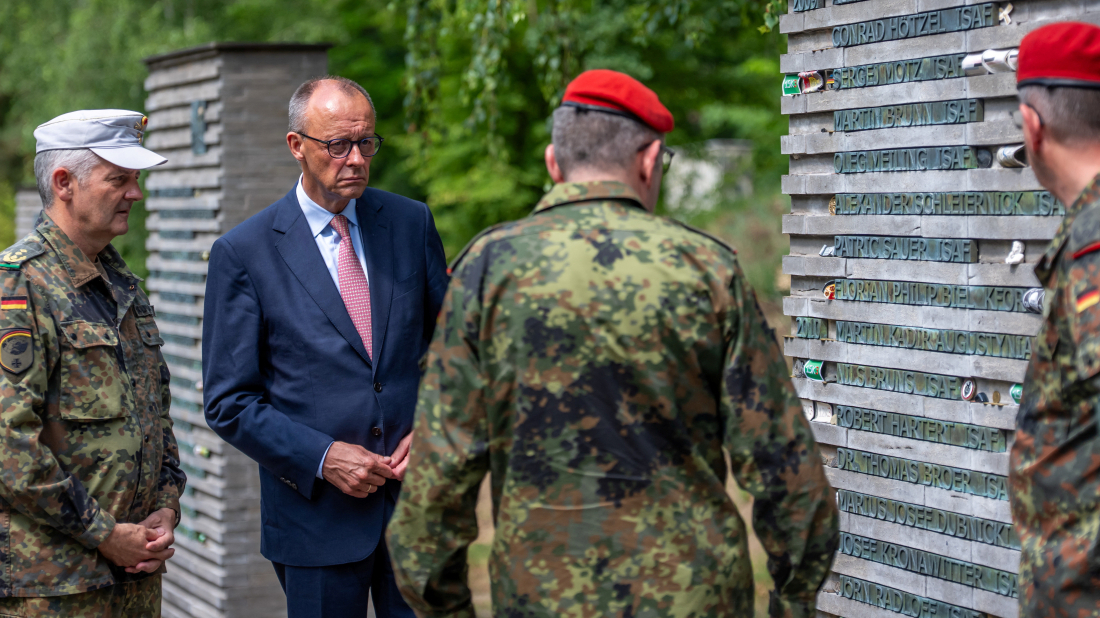Austrian climber convicted after girlfriend freezes to death on Grossglockner mountain
An Austrian climber has been convicted of gross negligent manslaughter after his girlfriend died from hypothermia while climbing Austria’s highest p...

The German government on Wednesday approved the creation of a permanent National Security Council aimed at strengthening the country’s medium- and long-term security planning.
The new body, replacing the Federal Security Council and the Security Cabinet, delivers on a key election pledge by Chancellor Friedrich Merz. It reflects growing recognition that Germany had lost its strategic focus on security during the relative calm of the post-Cold War era.
“This is long overdue,” said Stefan Mair, head of the SWP think tank. “Its value lies less in the decisions taken than in ensuring that ministries develop a shared understanding of the security landscape.”
Germany was left unprepared for Russia’s full-scale invasion of Ukraine in 2022, with gas reserves only half full, forcing Berlin to rapidly overhaul its energy system to reduce dependence on Moscow. The shock prompted deep reflection among policymakers, with many blaming successive governments for letting the armed forces shrink after the Soviet Union’s collapse in 1991.
The new council, based permanently at Merz’s riverside office, will be tasked both with addressing immediate threats and anticipating longer-term risks. It will be chaired by the chancellor, with the finance minister as his deputy. Permanent members will include the ministers of foreign affairs, interior, justice, economy, defence, development and digitalisation.
Additional representatives from Germany’s federal states, allied nations or the scientific community may be brought in when required.
Germany joins a growing list of countries to establish a centralised security committee modelled on the United States’ National Security Council, with Britain among the first to adopt a similar system in 2010.
The drumbeats have finally faded at the Marquês de Sapucaí, bringing the competitive phase of the Rio Carnival 2026 to a dazzling close. Over two marathon nights of spectacle, the twelve elite schools of the "Special Group" transformed the Sambadrome into a riot of colour.
Israel is preparing for the possibility of receiving a green light from the United States to launch strikes against Iran’s ballistic missile system, according to Israel’s public broadcaster KAN.
Aghdam’s Qarabag FK experienced a 6–1 defeat to England’s Newcastle United in the first leg of their UEFA Champions League play-off tie in Azerbaijan's capital Baku Wednesday evening (18 February).
Qarabağ FK are facing Newcastle United in the UEFA Champions League play-off round on Wednesday evening in Baku, in what will be the first UEFA competition meeting between the two clubs.
U.S. President Donald Trump’s 'Board of Peace' will hold its first leaders’ meeting on Thursday (19 February) in Washington, D.C., launching an initiative aimed at stabilising Gaza and addressing global conflicts. It's drawn support from regional powers but refusals from several EU countries.
An Austrian climber has been convicted of gross negligent manslaughter after his girlfriend died from hypothermia while climbing Austria’s highest peak, the Grossglockner, in January 2025.
U.S. President Donald Trump warned Iran to strike a deal within 10-15 days or face "really bad things," after Geneva talks this week ended without a breakthrough despite claims of progress. The comment comes amid a buildup of military from both sides in the region.
Cubans are increasingly turning to solar power to keep businesses operating and basic household appliances running during prolonged electricity cuts, as fuel shortages make diesel generators and other temporary solutions more difficult and costly to maintain.
Mexican authorities have uncovered a 22-metre tunnel used to siphon fuel from a state-owned pipeline, shedding light on the country’s long-running battle against a lucrative black-market trade often controlled by organised crime.
At least four people have died and 17 others were injured after a liquid gas truck overturned and exploded in Santiago, Chile’s capital, authorities confirmed on Thursday. Police said the driver was among those killed.
You can download the AnewZ application from Play Store and the App Store.

What is your opinion on this topic?
Leave the first comment